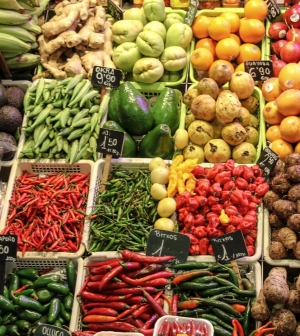- Do you subscribe to Dharma Dog Training’s Newsletter? You should.
- A Unique Campaign from The Humane Society of the United States
- Rabid bats in Omaha- Stay safe, prepared with these tips
- Springtime Activities in Omaha
- Mill Dog Monthly from Bailing Out Benji
- World Spay Day, Legislative Alert in Nebraska
- Attend the Nebraska Rescue Council’s monthly meeting this Saturday
- Five Hard-to-Ignore Reasons to Adopt!
- Paws in Pink to Benefit Breast Cancer Foundation
- VCA, Inc. Acquires MidWest Vet Specialists from Kansas State University
Benefits of Spinach in Your Dog’s Diet

Spinach is good for humans, but is it healthy for your dog? Just like other vegetables, you need to know their impact on your furry friend. Naturally, dogs are carnivorous. Therefore, they may not necessarily need vegetables as part of their diet. But it can serve as a supplement to their meat diet.
Can Your Dog Eat Spinach?
Spinach contains many useful nutrients, which makes it a healthy supplement for a dog meal. So, yes! Your dog can eat it. You just need to know that dogs react to each meal in different ways. Hence, a smaller dog may not enjoy the vegetable as much as a larger one in its meal. You can click here to find a list of human foods that your pup can and can’t eat.
Below are some nutritional facts for 100 g of unprocessed spinach.
- 79-milligram Magnesium
- 558-milligram Potassium
- 28.1-milligram Vitamin C
- 2.03-milligram Vitamin E
- 12200 microgram zeaxanthin and Lutein
- 9380 IU of Vitamin A
- 2.2 g dietary fiber
- 3.63 g carbohydrates
- 0.39 g fat
- 2.86 g protein
- 23 Calories
Advantages of Feeding Your Dog Spinach
As earlier mentioned, this vegetable is rich in nutrients. It is dense in magnesium and iron, including essential vitamins E, C, and A. Some people believe that serving it to your dog occasionally can help to prevent cardiovascular issues, cancer, and inflammatory problems. It also has the potential of increasing the immunity and energy level of your pet.
It is important to note that too many veggies can become an unhealthy thing for your dog. Seventy-five to eighty-five percent of your pet’s meal constitutes meat. Thus, giving it excess of the vegetable can result in nutrient deficiency, specifically in amino acids since spinach has low protein. Ensure you serve your dog a well-balanced meal.
Preparing Spinach for Your Dog
If you really want to prepare this vegetable as an addition to your dog’s diet, there are some things you should know. Dogs do not have the same digestive system as humans, so they cannot eat food that we prepare in a certain way for ourselves.
Additionally, dogs can’t disintegrate vegetables, so it is necessary to chop them into smaller pieces to make digestion easier. Other methods of preparing spinach are by steaming, pureeing, or blanching. These will also make digestion less of a chore for your pup. However, it is better to steam than to boil, which may destroy many of its nutrients.
Furthermore, if your dog behaves like a toddler that makes a fuss about meals when you want to offer it plain spinach, ensure to mask it in a very tasty treat. You can visit https://hungrybark.com/blogs/nutrition/can-dogs-eat-spinach to find some tasty spinach recipes that your pup cannot resist. Ensure you introduce new meals slowly.
Here’s other helpful information that you should remember when preparing vegetables for your pup:
1. Serve Occasionally and Sparingly
As we discussed earlier, too much of everything, including healthy meals, is bad. To avoid nutrient deficiencies, ensure you serve small portions of veggies to your pup one or two times per week.
2. Introduce New Meals Slowly
Your pet could suffer diarrhea, stomach upset, or vomiting if you feed it too much of a particular meal, even if the meal is a healthy one. Hence, it is better to start serving it in smaller portions, then graduate into larger servings later. This will allow its system to adjust gradually to the new meal.
3. Your Pup May Dislike the Taste
Even as humans, we do not like the taste of every meal, so expect this from your pet. You can try to serve the vegetable with meat or other vegetables that it already enjoys.
4. Do Not Include Additives
Some things like garlic and onions may be poisonous to dogs. When preparing veggies for them, avoid adding salt, oil, butter, spices, and herbs.
5. Puree the Veggies
Dogs cannot digest leaves as we can. When preparing veggies for them, remember how their digestive system functions and always puree the vegetables.
6. Choose Organic, Always!
When you go to the store, ensure that what you are buying is organic. But if you can’t find an organic product, make sure you rinse the vegetables properly to avoid having residuals of pesticides in your dog’s food.
Things to Avoid When Feeding Spinach to Your Dog
When you want to add this leafy vegetable to your pup’s diet, avoid the following potential pitfalls in order to make sure your dog benefits more:
1. Consider Its Health Condition
If your canine has a medical condition like kidney disease, it is best to avoid feeding it spinach. This is because pets suffering from various medical conditions may not be able to digest the vegetable without experiencing oxalate and calcium metabolism problems.
2. Do Not Add Salt
Spinach already contains a high level of sodium. Hence, adding salt when preparing this leafy snack may be disastrous.
3. Do Not Forget to Add Water
Spinach contains oxalic acid and a high level of sodium. Therefore, adding enough water to the meal will help to flush them out of your pet’s system faster.
4. Withhold Seasonings
To prevent your dog from developing gastrointestinal issues, avoid adding seasonings, oil, spices, and herbs to spinach. It is better to serve the vegetable plain.
What Should You Do if Your Dog Rejects Spinach?
It is normal for some dogs to reject leafy vegetables. They may even mouth them, and then spit everything out. The annoying part is when they look at you with so much hope and plead for a meaty bite instead. When this happens, do not give up!
You want your pup to eat healthily, so do all you can to make sure that it does so. You can consider other tasty veggies like cabbage, collard greens, Swiss chard, kale, arugula, and lettuce. Keep trying various fresh veggies until you find the one your dog loves.
Conclusion
Consumption of spinach may result in calcium imbalance. Hence, it is important to consult your vet before adding it to your pup’s diet. Most healthy dogs handle occasional, small portions of leafy vegetables. But you still need to check with the veterinarian before introducing any new food to the diet. With the potential benefits, it is left for you to choose whether you want to feed spinach to your pup or not.
Latest News
-
Join Us at Pick A Pooch 2025: A Fun-Filled Weekend for the Whole Family
A Fun-Filled Weekend for Pet Lovers and Families Alike Mark...
- Posted 1 year ago
- 0
-
Beardmore Presenting Sponsor At This Years Pick-A-Pooch event
🐾 We are thrilled to announce that Beardmore Subaru is...
- Posted 3 weeks ago
- 0
-
How Having A Pet Can Change Your Life
Having a pet can open your heart in ways that...
- Posted 2 months ago
- 0
-
How To Improve The Life Of Your Senior Pet
Do you have an elderly fur baby and want to...
- Posted 3 months ago
- 0
-
Springtime Activities To Enjoy With Your Furry Friends
Are you preparing for warmer weather and want some ideas...
- Posted 4 months ago
- 0
-
Pros And Cons Of Microchipping Your Pets
Have you considered whether your pets should be microchipped and...
- Posted 4 months ago
- 0
-
The Best New Fun Toys For Dogs And Cats
The Best New Fun Toys For Dogs And Cats Did...
- Posted 5 months ago
- 0
-
Heartfelt Ways To Show Your Pet You Love Them
Did you know there are more ways to show your...
- Posted 6 months ago
- 0



















You must be logged in to post a comment Login